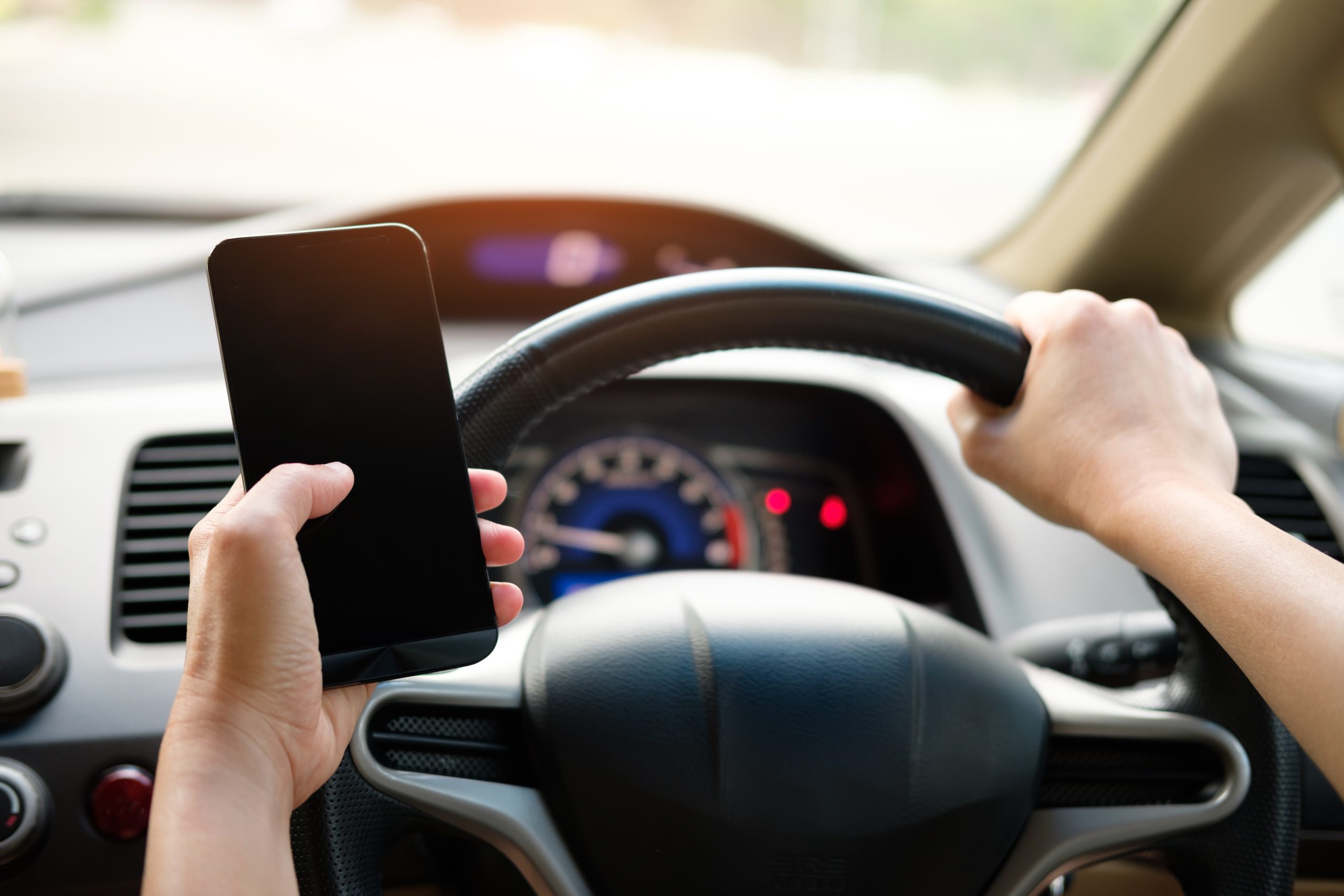
By: Karen Piso Nadeau, Esquire and Leslie S. Harkavy, Esquire
After many years of debate, in November 2019, Governor Charlie Baker signed a law in the Statehouse library attended by crash survivors and family members who lost loved ones to distracted driving crashes. The law bans hand-held cell phone use while driving. Massachusetts becomes the 21st state to ban hand-held cellphone use while driving. New Hampshire, New York, Rhode Island, Vermont and Connecticut already prohibit hand-held use of cellphones. Charlie Baker stated, “when a driver on an electronic device hits something or someone, that’s not an accident, it’s a crash that was avoidable.”
Here is what you need to know:
The new law goes into effect on February 23, 2020.
From February 23, 2020 until March 31, 2020, police officers will only be allowed to issue a warning for a first offense.
The law prohibits drivers from holding their cell phones while driving.
An operator driving a motor vehicle should not hold a phone to text, check social media or email.
The new law forbids drivers from holding a phone for any reason other than an emergency.
Drivers may not look at images, texts, or videos on an electronic device while driving other than a map or navigation system on a mobile electronic device mounted or affixed to the vehicle’s windshield, center console or dashboard so long as it does not impede operation of the motor vehicle.
A driver cannot read, write, or send texts messages while driving even if stopped in traffic.
Beginning February 23, 2020, Massachusetts drivers may only use mobile devices in hands free mode. Calls may be made in hands-free mode using Bluetooth.
The law allows a single tap or swipe to activate or deactivate hands-free mode.
The exception to the new cell phone ban is an emergency whereby a driver may use a cell phone for medical attention, for police or fire department intervention or to report an accident. The law also permits use necessary for first responders to do their job in response to an emergency.
The law permits use if the operator is stationary and not in an active lane of travel.
First offense is a $100 fine; second offense is a $250 fine and third or subsequent offense is a $500 fine.
A second offense or more than one offense requires completion of a distracted driver program.
A third infraction is a surchargeable event and will result in an insurance surcharge.
To address racial profiling, data will be collected. Under the new law, anytime an operator receives a ticket or written warning during a traffic stop, police are required to record the age, race, and gender of the individual along with information about the offense and how it was resolved.
In 2010, Massachusetts banned texting while driving. However, it was difficult to enforce. Police did not know if a driver was texting or calling someone. Under the age of eighteen, any use of a cell phone while driving is prohibited, even just for talking.
According to Transportation Secretary, Stephanie Pollack, “there is a culture of cell phone use that needs to change and will involve enforcement and education”.
The new law entitled “An Act Requiring The Hands-Free Use of Mobile Telephones While Driving” forbids anyone operating a motor vehicle from touching or holding a mobile electronic device except to perform a single tap or swipe to activate, deactivate, or initiate hands-free mode.
Here are some eye-opening statistics about cell phone use and driving:
According to the National Highway Traffic Safety Administration, sending or reading a text takes your eyes off the road for 5 seconds. At 55 mph, that is like driving the entire length of a football field with your eyes closed.
In 2017, 3,166 people were killed in motor vehicle crashes involving distracted driving. In 2018, 4,637 people died due to cell phone use. Use of a cell phone while driving caused an estimated 1.5 million car crashes in the US in 2017. A driver is 6 times more likely to cause a car accident texting while driving than drunk driving. 25 percent of all crashes in the US involve use of a cell phone. 390,000 injuries occur in the US every year due to texting and driving. According to the Department of Transportation, the number of texting while driving deaths is 6,000 annually in the US alone. A driver is 23 times more likely to crash if reading or sending a text.
The new law will make our roads safer and, in all likelihood, reduce the number of car accidents, injuries and deaths from distracted driving. Mark your calendar for the start date of the new law: February 23rd– No hand holding of cell phones when driving! The recommendation is to start this safe practice now if you are not already. Before we know it, we will not remember what it was like to hold and use a cell phone when driving!
The lawyers at Nadeau Harkavy LLC help victims and their families recover damages for their losses in serious injury and wrongful death cases arising from motor vehicle accidents. If you have any questions about your legal rights relating to a motor vehicle accident, wrongful death or other accident, feel free to contact us for a free consult today at 617-674-7640.
Meet The Lawyers
With 60 years of combined experience serving injured victims in Massachusetts, our team has collaborated for nearly two decades, delivering a proven track record of outstanding results for clients. Guided by a philosophy of treating clients as we would our own family, we strive to ease our clients' journey from the initial phone call to case resolution. Committed to competing and fighting vigorously, we aim to hold insurance companies accountable to the fullest extent of the law. Our belief in close communication ensures the best possible outcomes, and our approachability makes us readily available to you. Entrust us with your case, allowing you to focus on your physical, emotional, and financial recovery.
Massachusetts Personal Injury Lawyers
Massachusetts Personal Injury Lawyers with over 60 Years Combined Experience Representing Those Injured in Accidents.













